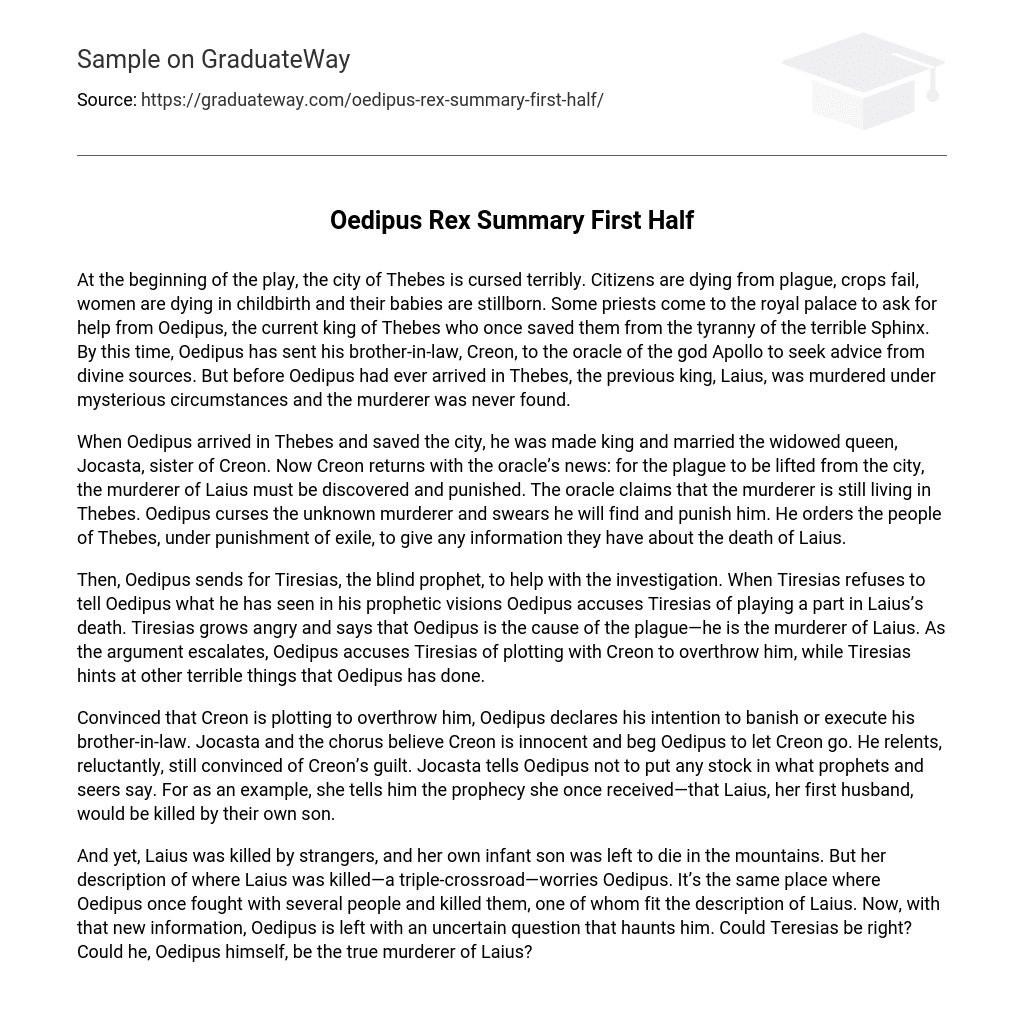The opening of the play depicts Thebes suffering under a devastating curse. The citizens are being killed by a plague, crops are failing, women are dying during childbirth, and babies are being born dead. The priests turn to Oedipus for assistance as he is currently ruling over Thebes after defeating the Sphinx. Oedipus has already dispatched his brother-in-law Creon to seek advice from Apollo’s oracle. Before Oedipus arrived in Thebes, King Laius was murdered and the identity of the killer remained unknown.
Upon arriving in Thebes and successfully saving the city, Oedipus became king and married Jocasta, his sister through blood ties with Creon. Now, Creon has returned with news from the oracle: to end the devastating plague, they must find and punish Laius’ killer. Shockingly, the oracle reveals that this murderer is still within Thebes itself. Filled with rage towards this unknown culprit, Oedipus vows to personally find them and ensure justice is served. To assist him in his search for truth, Oedipus orders all residents of Thebes to provide any information regarding Laius’ death; failure to comply will result in exile.
Oedipus seeks assistance from the blind prophet Tiresias in his inquiry. Nevertheless, when Tiresias declines to disclose what he has witnessed in his prophetic visions, Oedipus alleges that Tiresias is implicated in Laius’s demise. This accusation infuriates Tiresias who implies that Oedipus is accountable for both the plague and Laius’s murder. The dispute intensifies as Oedipus accuses Tiresias of colluding with Creon to dethrone him, while Tiresias hints at other dreadful deeds perpetrated by Oedipus.
Convinced that Creon is planning to overthrow him, Oedipus announces his plan to exile or execute his brother-in-law. Jocasta and the chorus are certain of Creon’s innocence and plead with Oedipus to release Creon. Although reluctant, Oedipus finally agrees, but remains convinced of Creon’s guilt. Jocasta advises Oedipus not to rely on the predictions of prophets and seers. As an illustration, she shares her own prophecy that she once received – that her first husband, Laius, would be killed by their own son.
Despite Laius being killed by strangers and her own infant son being abandoned in the mountains, Oedipus becomes concerned when Jocasta describes the triple-crossroad as the location of Laius’ murder. This is the exact place where Oedipus had once fought with and killed several individuals, one of whom resembled Laius. Now, armed with this newfound knowledge, Oedipus is plagued by a lingering question: Could Teresias be correct? Could he, Oedipus himself, be the actual perpetrator of Laius’ murder?





